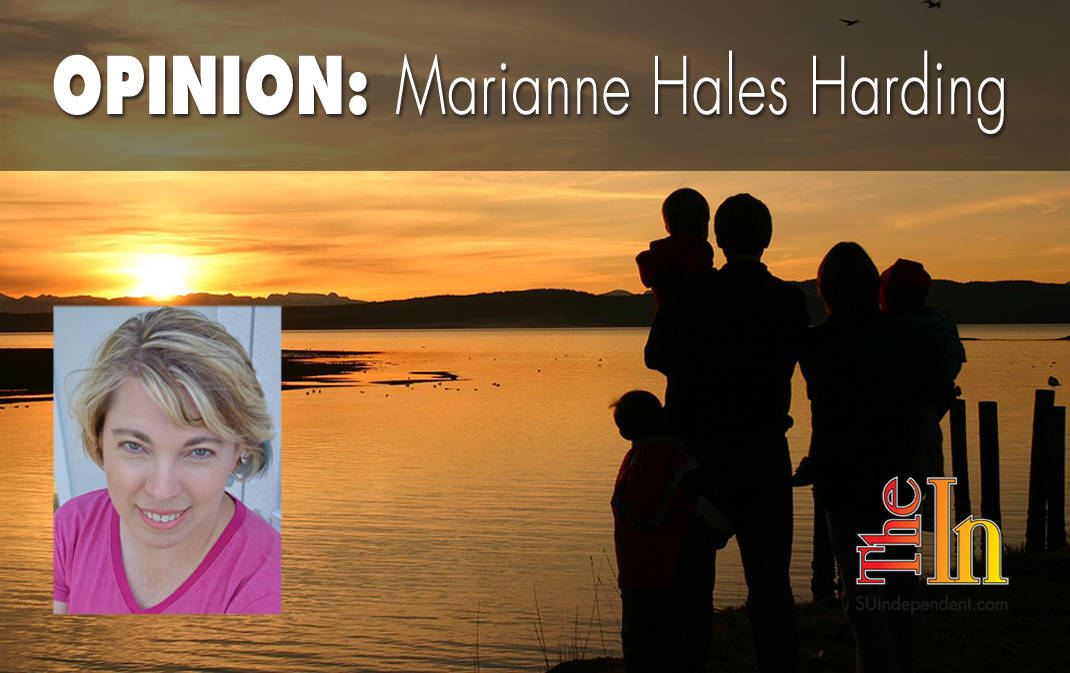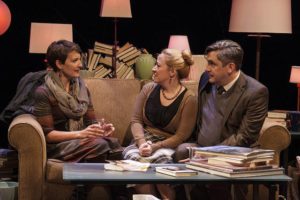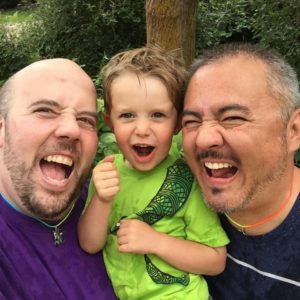 Editor’s note: a previous version of this piece listed the title of Melissa Leilani Larsen’s play “Pilot Program” as “Pilot Project.”
Editor’s note: a previous version of this piece listed the title of Melissa Leilani Larsen’s play “Pilot Program” as “Pilot Project.”
If you’ve known me for a while, you might have noticed that I don’t generally talk politics. And if you’ve known me for quite a while, you might have noticed that I especially avoid the hot topic of LGBTQ issues (the biggest one of late being LGBTQ families). The problem is that as a straight Mormon artist, I am continually between a rock and a hard place for these types of issues. I’m not conservative enough for my conservative friends, and I’m not liberal enough for my liberal friends. So I tend to choose the safety of silence.
This started to change with the struggles over the past few years in relation to marriage equality. Suddenly, so many people who never talked about S-E-X publicly were expending a great deal of energy talking about sexuality, and it became apparent that many of them had no more than a passing connection with anyone who openly identified themselves outside of the heterosexual box. As an artist, I have had the pleasure of working closely with people who are different from me in many ways, including sexual orientation. Finding our common humanity is one of the best parts about being an artist.
So when I see commercials like the one from not too long ago that featured a lesbian couple adopting a young girl out of the foster system, I cry in all the right places (I’m a sucker for a good commercial) and don’t think more of it. I was surprised, then, when a sister in my LDS ward cited that very commercial as an example of extremely offensive and destructive media. But … but … a kid who had no one now has two people who would walk over hot coals to keep her safe. What’s the downside here? Normalization of the concept of LGBTQ families?
But, friends, they are normal. And the sky is blue. And the emperor has no clothes.
I’m not arguing doctrine here. I’m not calling for sweeping changes to the LDS church or taking upon myself a stewardship for revelation that I have no claim to. I’m thinking about apostolic injunctions to love our LGBTQ brothers and sisters (regardless of their religious affiliation or lack thereof) and about the fact that we do not live in an exclusively LDS universe (even those of us living in Utah). We live with people who sometimes think differently than we do. Good gravy, friends. Even in an exclusively LDS universe we would live amongst people who sometimes think differently than we do. We aren’t all breathy blonde sopranos with Prop 8 signs on the front lawn (shout out to all of my wonderful friends who are sopranos or Californians or homeowners).

Can we not live and let live? People loving each other and taking care of each other will never hurt me, but contention and hatred and discrimination always will (even when I am not the one being discriminated against). This is a pretty simple case of doing unto others as you would have others do to you. We don’t have to dig too deeply to find a time when straight Mormons were considered aberrant and laws were enacted specifically in opposition to church doctrine. Perhaps many discount this time period because we’re grateful that our ancestors were oppressed enough to give up the doctrine of polygamy (I, for one, am eternally grateful that’s not one of the choices I have to make as a person of faith. Special thanks to Melissa Leilani Larsen for bringing that horrifying prospect to life in her terrifying play “Pilot Program”), but the fact remains that we ought to be able to muster up some empathy here. We ought to be able to say “I wouldn’t want anyone to say my family isn’t a family simply because my family doesn’t look exactly like theirs.”

This is the point in the conversation where I stop to take a breath and wonder why I didn’t just keep my big mouth shut. On the one hand will be people asking about the new policy about minors from LGBTQ families that are seeking baptism or about homosexual acts being considered a sin (and all of the ramifications of that). Friends, I don’t have answers for you on those things other than the one you hate to hear: I’m going on faith that there are answers I just haven’t found yet and history that has yet to be written. On the other hand will be people criticizing me for wavering from the conservative “party line” or citing these few lines of poetry: “vice is a monster of so frightful mien / As to be hated needs but to be seen; / Yet seen too oft, familiar with her face, / We first endure, then pity, then embrace.” (That’s Alexander Pope, if you aren’t familiar.) Maybe I’ll get another call from my brother-in-law, concerned that I’m stirring up and confusing my nieces and nephews (sorry, guys, if I accidentally lead you to hell).
Set all of that aside for a few minutes and listen to this story about a local LGBTQ family’s experience with adoption from Radio West on KUER (warning: it might make you cry).
Know what it reminded me of? Every straight Mormon adoption story I’ve ever heard. Because we may have our differences, but one thing we can agree on is how beautiful it is when people who love each other form families.
Articles related to “A straight Mormon talks about LGBTQ families and marriage equality”
Mansplaining the Temple at BYU’s Education Week: Examining charges of sexism
Westboro Baptist Church launches “Jesus Hates Fags” anti-smoking campaign



